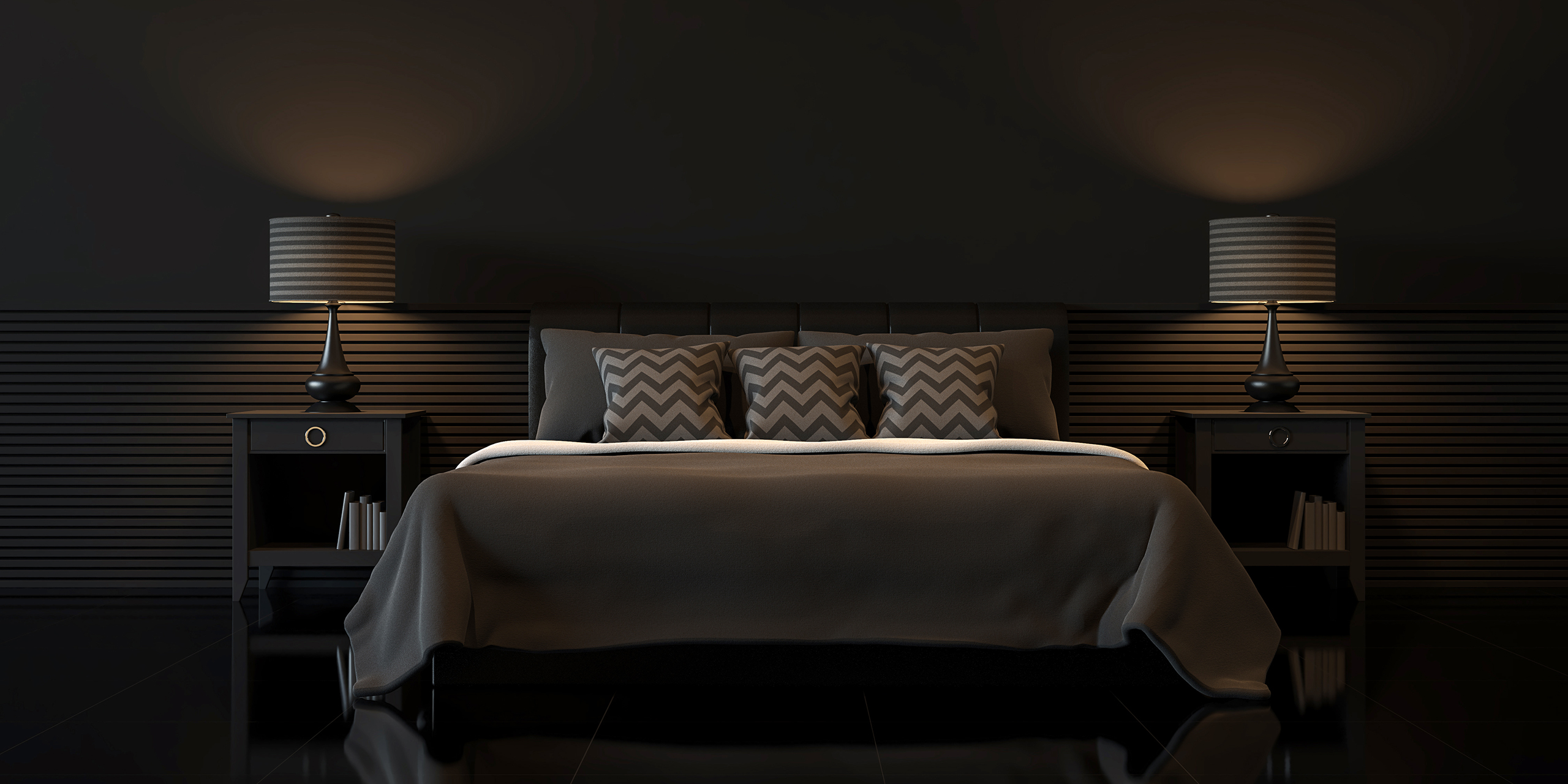Creating a Sanctuary for Sleep

While your whole home should be a place of great comfort, your bedroom should be the ultimate location for serenity and peace. Not only will you look forward to retiring there nightly, a soothing bedroom will create optimal conditions for amazing sleep. We’ve compiled all of the factors to consider when creating your sleep sanctuary, and some tips on how to achieve this bedroom bliss.
When creating the perfect bedroom oasis, there are several universal factors to consider.
Darkness:
Darkness protects your body’s ability to produce melatonin, the hormone responsible for making us sleepy, and helps ensure a high-quality, restful sleep. The darkness in your room can be compromised by many things such as street lights, hall lights, or the digital displays and indicator lights emanating from your electronics.
Before bed, you should assess all sources of light and do your best to bring the level to near total darkness. Make sure to close all curtains or blinds and remove or cover any devices that emit light (including the tiniest LED light). If you are unable to make your room completely dark, consider using an eye mask at night or investing in quality blackout curtains.
Temperature:
Like sleep itself, your body temperature is regulated over the course of a 24-hour day by internal rhythms. Your body temperature starts to drop in the evening and continues to dip throughout the night before reaching its lowest point at about 4 AM. This drop in body temperature triggers drowsiness and is your body’s cue that it’s time to go to bed. It also makes you increasingly sensitive to external temperatures throughout the night.
Therefore, it’s important to regulate the temperature in your bedroom for the duration of the night. Set your thermostat between 60-68 degrees Fahrenheit, the ideal temperature for sleep. If that isn’t an option, make sure to open a window or use a fan to help cool you down on warm nights.
Silence:
Noise at night can prevent you from falling asleep initially and can create restlessness in sleep even if they don’t wake you up fully. These interruptions affect sleep quality and the movement from lighter to deeper stages of sleep, so it’s important to protect your sleep environment against unwanted noise for the duration of your night’s rest.
If sound interferes with your sleep at night, there are a few adjustments you can make to reduce and regulate noise in your bedroom. Carpets and floor coverings, along with curtains on the windows can help muffle noise from outside. Keeping windows closed will also limit noise from outside. Be sure to turn off all electronics before you turn in for the night. If the sounds that wake you are out of your control, white noise can help mask the sounds and wearing earplugs to bed can help block them out altogether.
Comfort:
Being comfortable is probably the most obvious key to sleeping soundly, so you’ll also want to consider what you’re sleeping on. Your mattress and its foundation can also make an enormous difference in how well you sleep. Most good-quality mattresses have a life expectancy of 9 or 10 years and, even if it still feels comfortable, keeping it longer than this means it has probably lost its ability to provide your body with the proper support it needs. You should also consider investing in different types of sheets for each season, pillows that support your body properly, and pajamas that fit loosely and keep you comfortable.
In addition to the above, you can bring your sleep game to the next level by taking these additional steps.
- Reduce electronics use before bed: Their blue light suppresses melatonin production and can impair sleep. Instead of helping you relax, lying in bed watching TV tends to stimulate your mind, leaving you feeling more awake, and less able to fall asleep easily. Consider keeping your TV off in the bedroom, and only use your smartphone for sleep tracking and alarm setting before bed.
- Use the bedroom strictly for sleeping (and sex): Avoid watching TV, eating, and discussing emotional issues in bed. The bed should be used for sleep and sex only. If not, we can associate the bed with other activities, and it often becomes difficult to fall asleep.
- De-clutter the bedroom: A messy bedroom can induce stress, and the optimal sleep environment should promote feelings of serenity. Create a peaceful sanctuary by taking the time to rework the space, eliminate clutter, and make your bedroom a room you enjoy entering.
It may take a bit of time and effort to turn your bedroom into a sleep sanctuary, but it is well worth it. Your sleep cycle and your mood every morning will greatly improve, so give it a shot!



